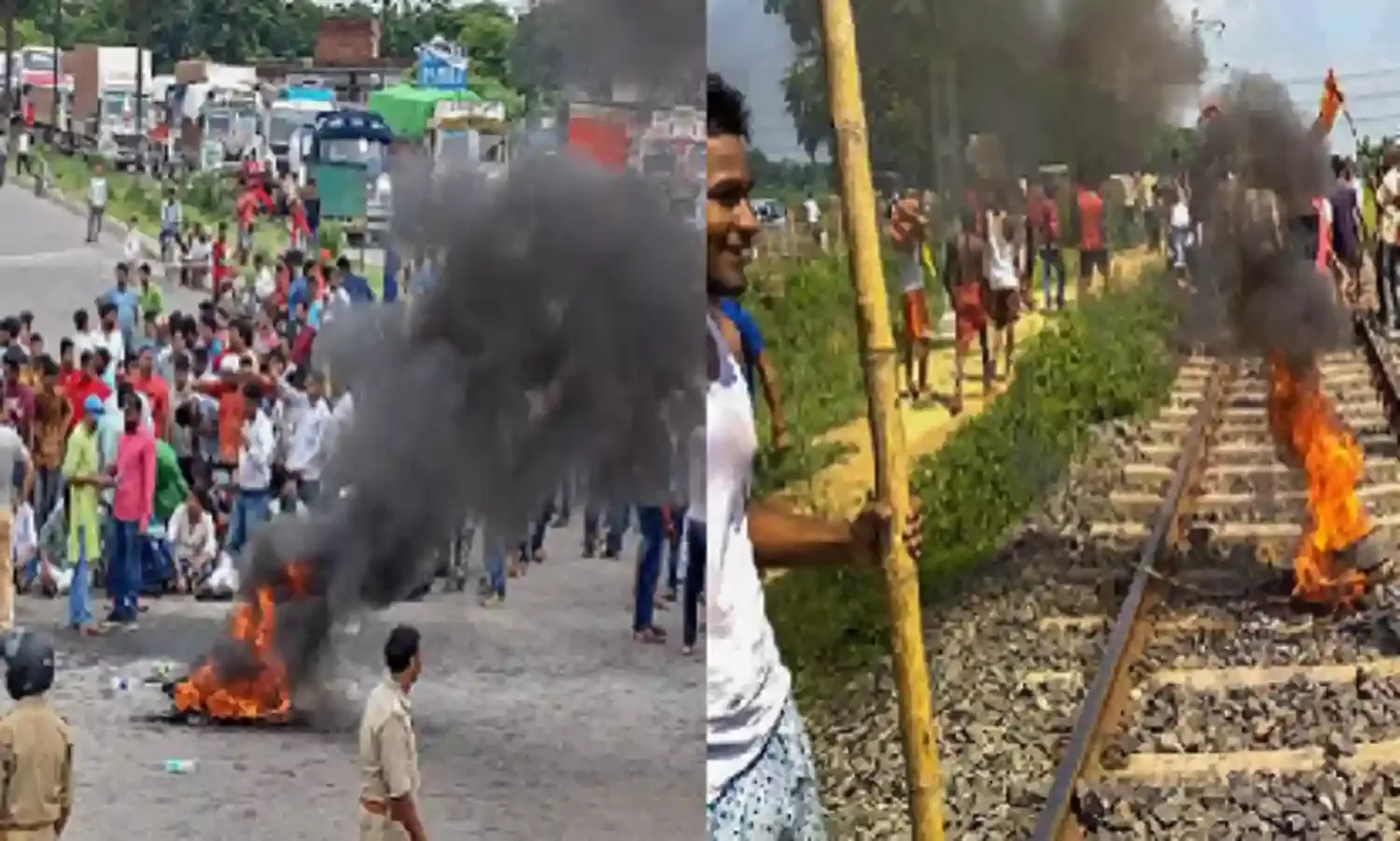BJP's Own Constituency Turns: Upper Castes on Streets Against SC/ST Amendments
Protests across UP, MP, Bihar, Rajasthan

NEW DELHI: The Narendra Modi led BJP government has entered the eye of a storm with the upper castes staging protests, burning effigies, stopping trains across the Hindi belt ? Madhya Pradesh, Bihar, Uttar Pradesh, Rajasthan ? in protest against the Scheduled Castes and the Scheduled Tribes (Prevention of Atrocities) Amendment Bill that got the nod from Parliament recently.
The Bill overturns an earlier Supreme Court order and rules out any provision for anticipatory bail for a person accused of atrocities against SC or ST individuals, notwithstanding any court order. It also ensures no preliminary inquiry will be required for registering a criminal case, and an arrest under the law will not be subject to any prior approval.
The ‘Bharat Bandh’ called by organisations and sections of society the BJP has always claimed as its own on Thursday has shaken the government with the stir set to escalate.
The Supreme Court on Friday declined to stay the amendment bill, maintaining that it could not decide on the matter without hearing the government. A notice was issued by the apex court to the central government, and the matter posted for hearing after six weeks.
The angry protests have placed the central government in a tight bind. It had brought in the amendment bill following widespread protests by Dalits against the Supreme Court order on March 20 which diluted the SC/ ST Act by stating that immediate arrest of an accused under this law would no longer be mandatory. And that the arrest would follow a preliminary enquiry by the police or the investigating agency.
That stir had an impact on the BJP with its Dalit ministers Ram Vilas Pawan and Ramdas Athawale reportedly reading it the riot act, threatening to quit the party unless the government intervened with the necessary amendment through Parliament. Worried about the anti-government mobilisation among Dalits after the Bhima Koregaon violence in particular, the Union Cabinet approved the amendment, placed it before Parliament and got the endorsement of both Houses.
The simmering anger reported from the districts, in the Hindi speaking states in particular, erupted on the streets. Shops, schools and commercial establishments were closed in most of the BJP-run states. The Swaran Sena, Brahman Mahasabha, Kshtriya Mahasabha, Rajput Samaj Samiti and Sawarn Sangathan blocked road and rail traffic at Ara, Patna, Darbhanga, Muzaffarpur and Nawada in Patna with protests outside the BJP and JD(U) offices in Patna.
Former Bihar minister Shyam Rajak’s carcade was targeted in Begusarai, according to media reports. Jan Adhikar Party leader and MP Pappu Yadav started crying in front of reporters saying he was attacked by protesters. “My security guards saved me. When I reached Sakra in Muzaffarpur, my vehicle was stopped. I kept saying I supported their demands, but they tried to push me and abuse me,” he said.
In Madhya Pradesh, the response to the Bandh was “intense” according to reports with processions and protests reported from most major cities including Morena, Jabalpur, Guna, Shahdol, Rewa, Sheopur, Indore and Hoshangabad. Agency reports said that protesters tried to stop trains in Rewa and Guna with the police resorting to a lathi charge.
As a senior Opposition leader in Lucknow said, the scenes yesterday were reminiscent of the anti-Mandal Commission protests across the country after V.P. Singh announced reservations for the backward communities. At that time the BJP had been in the forefront, and finds itself now at the receiving end. Protests were held in different parts of UP, with slogans raised against both Prime Minister Narendra Modi and Chief Minister Yogi Adityanath in Lucknow.
Rajasthan was also impacted by the bandh with schools, commercial establishments and shops closed in several districts. State capital Jaipur felt the bandh along with Udaipur, Alwar, Karauli, Jodhpur, Baran and Dausa. Interestingly members of Samta Andolan Samiti, an anti-reservation organisation in Jaipur, were also detained.
Significantly, pro-reservation organisations denied charges that OBCs were supporting the bandh. At a press conference Rajaram Meel, president of the Aarkshan Aadhikar Manch said, “The aim of the bandh is to create a divide between the OBCs and the SCs/ STs so that the upper castes can continue the inequalities across the social and political spectrum as well as in government jobs. Nowhere are OBCs supporting the bandh.”



